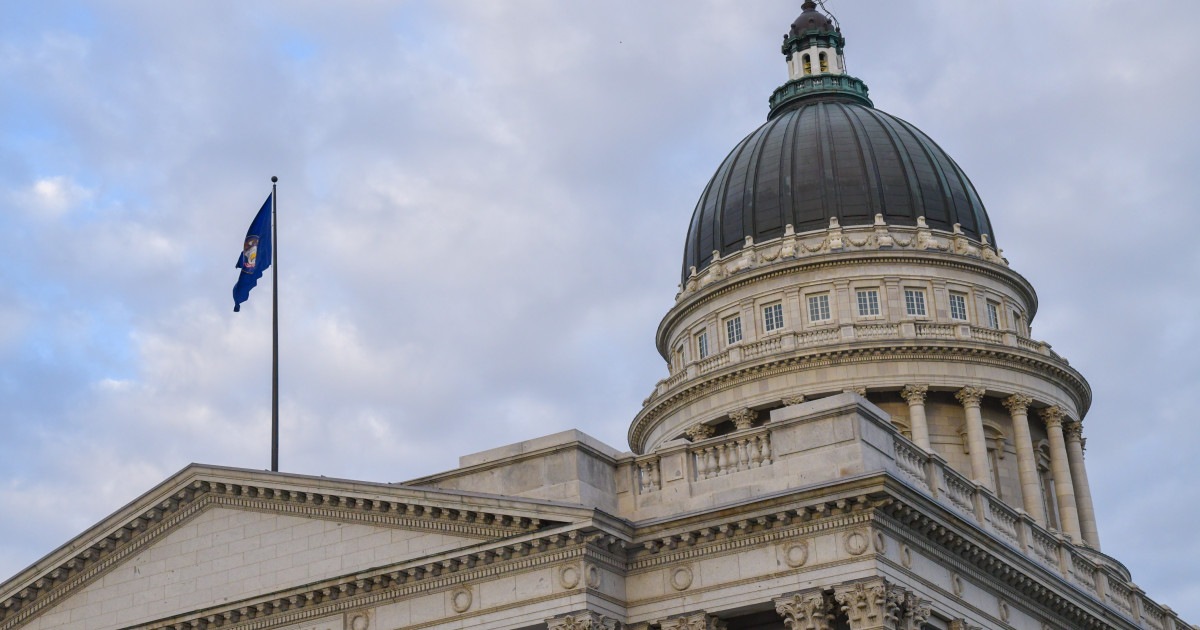

Utah lawmakers on Monday are poised to adopt a controversial bill to legalize medical cannabis use, quickly replacing a ballot initiative that passed with 53% voter support in November.
Proposition 2 took effect on Saturday, two days before the scheduled vote on the Utah Medical Cannabis Act, a 187-page proposal drafted in secret by a small group of lawmakers, the Utah Patients Coalition (drafters of Prop. 2), and lobbyists for the Utah Medical Association and The Church of Jesus Christ of Latter-day Saints.
Utah House Speaker Greg Hughes, R-Draper, has praised the bill as compromise between patients seeking access to medical cannabis and those who fear legalization poses a threat to public safety and Utah’s children.
What it’s not, Hughes has said, is a gut-job of the public will.
“This idea that something’s being sabotaged, that something’s being undermined, is just not the case,” the Speaker said at a Capitol Hill meeting last week. “We can gut something in three pages if we want to gut. There is no gutting of any proposition.”
Instead, Hughes said, the Act is bringing people on both sides together, including those who aren’t opposed to providing patients with relief, but didn’t like the initiative.
SUBSCRIBE TO CANNABIS WIRE’S MORNING NEWSLETTER
Original news and analysis from veteran journalists—straight to your inbox every weekday morning. (This newsletter is free now, but will soon be available only to subscribers.)
Many patient advocates disagree and showed up in droves last week — filling one committee hearing room and spilling over to two overflow rooms — to ask lawmakers to oppose the bill that many said would create barriers to patient access.
The bill, for example, reduces the number of privately licensed dispensary locations, restricts the qualifying medical conditions, and eliminates a “grow your own” provision for those who can’t easily access a distribution site.
“For every extra mile you add to where we can pick up our meds, for every extra layer of red tape… you are adding to our agony,” said Ogden resident Debra Jenson, who has a degenerative illness, as she lined up a row of prescription medications bottles on the hearing room table for the committee to see. “You are shortening our lives.”
Others chided Hughes for suggesting that supporters of Prop. 2 had voted for the initiative without fully reading or understanding its language.
North Salt Lake resident Kelly Jones said Hughes’s remarks insulated the electorate.
“We know the meaning of our vote,” she said.
Hughes and other lawmakers are intent on seeing the legislation passed. So much so that the Utah Senate President Wayne Niederhauser sent an email to the body suggesting that attendance at Monday’s special legislative session is considered mandatory, as is a passing vote.
“To avoid legal issues, legal questions and public confusion, this bill needs an immediate effective date and thus must pass by a two-thirds majority,” Niederhauser wrote. “I will not hesitate to order the sergeant-at-arms to find and ensure your attendance.”
Passing the bill won’t bring an end to the squabbling. The advocacy group TRUCE, or Together for Responsible Use and Education, has already threatened to sue over the legislation, citing the heavy-handed influence of the Mormon Church in its drafting — a mixing of church and state that is barred by the state’s constitution.
A June email from church lobbyist Marty Stephens to TRUCE founder Christine Stenquist shows clearly how much church officials were driving opposition to Prop. 2, the group’s attorney Rocky Anderson has said.
In the email, Stephens proposed developing a coalition of stakeholders to draft a joint agreement on the key components of medical marijuana access. Stephens said he could then present the agreement to lawmakers and the governor’s office and suggest it be used to draft a compromise bill that would negate the need for Prop. 2.
That would “prevent if possible, the 5-10 million dollar waste of money in fighting about this initiative,” Stephens wrote.
TRUCE wasn’t on board, nor were any representatives of the group invited to the private talks that led to the Act.
At the hearing, Anderson said the replacement bill includes many flaws — including leaving doctors vulnerable to federal criminal charges for prescribing a scheduled drug — and would serve to undermine the state’s initiative process that give citizens the right to pass direct legislation.
“This is not a compromise piece of legislation,” Anderson, a former Salt Lake City mayor, told the committee. “It’s a capitulation to the opponents of Prop. 2.”
Utah law does not prohibit the Legislature from modifying or replacing voter initiatives and Hughes has said he has the votes to pass the compromise bill, which has been thrice rewritten since it was first introduced in early October.
The most recent version, made public late Friday, adds physicians assistants, nurse practitioners and some social workers to the list of providers allowed to recommend medical cannabis to patients — something proponents of Prop. 2 wanted.
According to the legislative bill website, three lawmakers have filed substitute proposals for consideration, including Democrats Rep. Rebecca Chavez-Houck and Sen. Jim Dabakis, both of Salt Lake City. Republican Rep. Mike Kennedy, of Alpine also told Salt Lake City television station F Kennedy’s proposal mirrors Prop. 2, but would delay its effective date, moving the “affirmative defense” clause out to 2023.